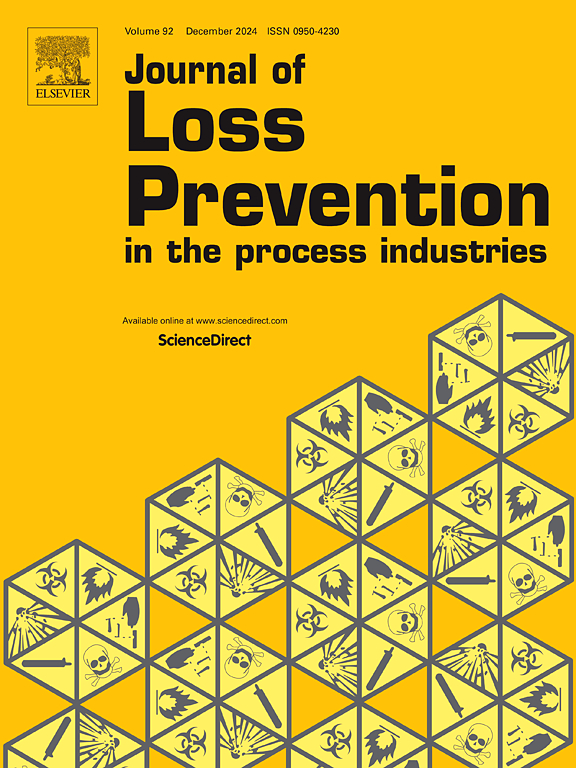组织间知识转移的失败如何影响过程安全:来自一个老化的海上油气设施收购案例研究的见解
IF 4.2
3区 工程技术
Q2 ENGINEERING, CHEMICAL
Journal of Loss Prevention in The Process Industries
Pub Date : 2025-08-29
DOI:10.1016/j.jlp.2025.105779
引用次数: 0
摘要
在高风险行业中,越来越常见的组织变革形式是收购老化设施。虽然其他类型的组织变革的安全影响已被广泛研究,但与老化设施收购相关的风险仍未得到充分调查。这种获取过程往往伴随着组织间知识转移(IKT)的重大挑战。虽然知识被广泛认为对过程安全至关重要,但IKT故障的影响需要进一步探索,特别是在没有保留原始操作团队的情况下。本研究旨在确定在收购没有人员转移的老化设施期间不成功的IKT的过程安全影响。通过对海上油气平台收购的定性案例研究,本研究对资产移交过程中出现的组织和运营不连续性进行了深入分析。来自案例研究平台的安全事故数据显示,收购后安全事故有所增加。与过程安全专家和从业人员进行了访谈,以将IKT挑战映射到基于风险的过程安全(RBPS)。发现IKT中的故障对工艺安全的影响各不相同。IKT过程中与治理相关的方面,例如在转移期间两家公司人员的可用性,以及对遗留数据库的访问,被认为是最关键的。这些故障不仅直接影响到RBPS要素,如过程知识管理,而且对安全造成影响。这些发现为管理人员和监管机构开发改进的IKT框架提供了支持,以避免老化设施收购后的运营安全风险。本文章由计算机程序翻译,如有差异,请以英文原文为准。
How failures in interorganizational knowledge transfer impact process safety: Insights from the case study of an ageing offshore oil & gas facility acquisition
An increasingly common form of organizational change in high-hazard industries is the acquisition of ageing facilities. While the safety implications of other types of organizational change have been widely studied, the risks associated with ageing facility acquisitions remain under-investigated. This acquisition process is often accompanied by significant challenges in interorganizational knowledge transfer (IKT). Although knowledge is widely recognized as essential to process safety, the impacts of IKT failures require further exploration, especially when original operational teams are not retained. This study aims to identify the process safety impacts of unsuccessful IKT during the acquisition of an ageing facility in which no personnel were transferred. Drawing on a qualitative case study of an offshore oil and gas platform acquisition, this study offers an in-depth analysis of the organizational and operational discontinuities that emerged during the asset handover. Safety incident data from the case study platform revealed an increase in safety incidents following the acquisition. Interviews with process safety experts and practitioners were conducted to map IKT challenges to Risk-Based Process Safety (RBPS). Failures in IKT were found to vary in their impact on process safety. Governance-related aspects of the IKT process, such as the availability of personnel from both companies during the transfer, and access to legacy databases, were found to be the most critical. These failures not only directly impacted RBPS elements such as process knowledge management but also contributed to safety impacts. These findings support the development of improved IKT frameworks for managers and regulators to avoid operational safety risks following an ageing facility acquisition.
求助全文
通过发布文献求助,成功后即可免费获取论文全文。
去求助
来源期刊
CiteScore
7.20
自引率
14.30%
发文量
226
审稿时长
52 days
期刊介绍:
The broad scope of the journal is process safety. Process safety is defined as the prevention and mitigation of process-related injuries and damage arising from process incidents involving fire, explosion and toxic release. Such undesired events occur in the process industries during the use, storage, manufacture, handling, and transportation of highly hazardous chemicals.

 求助内容:
求助内容: 应助结果提醒方式:
应助结果提醒方式:


